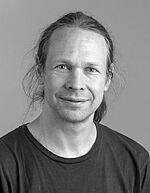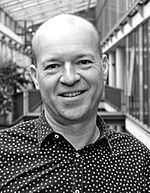Designing synthetic phototrophic microbial ecosystems (B04)
Green algae interact synergistically with heterotrophic bacteria and fungi that metabolise algal-derived carbon fixed through photosynthesis. These organisms assemble into stable communities in the microhabitat affected by the release of algal photosynthates, known as the phycosphere, and play roles in global carbon and energy cycles. However, the underlying quantitative principles that govern these interactions are not well understood. In this project, we will use the alga Chlamydomonas reinhardtii, a collection of associated phycosphere bacteria, and the antagonistic fungi Verticillium dahliae as model organisms to build synthetic microbial consortia. We will use this reductionist experimental system to establish a solid quantitative theory to explain fundamental principles governing microbial ecosystem establishment, dynamics and resilience.

- Prof. Dr. Oliver Ebenhöh
- Head of Institute
- +49 211 81-10172
- Institute of Quantitative and Theoretical Biology
Heinrich-Heine-Universität
Universitätsstraße 1 - Building: 22.07
- Floor/Room: 00.032

- Dr. Ruben Garrido-Oter
- Principal Investigator
- +49 221 5062 343
- Integrative Bioinformatics
Max Planck Institute for Plant Breeding Research (MPIPZ)
Carl-von-Linne-Weg 10

- Prof. Dr. Bart P. H. J. Thomma
- Principal Investigator
- +49 221-47089261
- Institute for Plant Sciences
Universität zu Köln
Zülpicherstraße 47b - Building: 304

